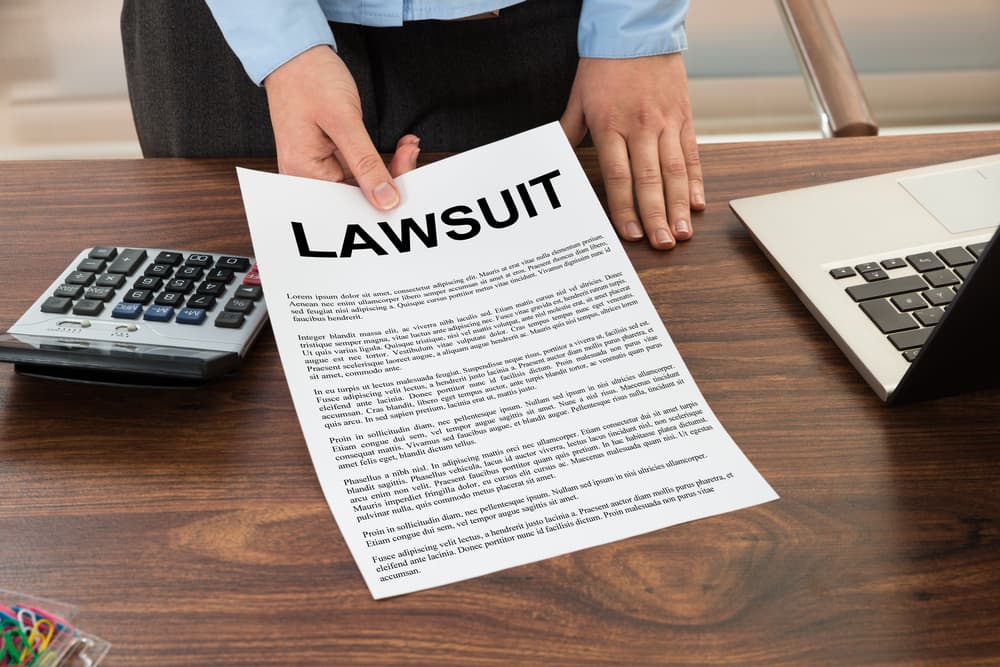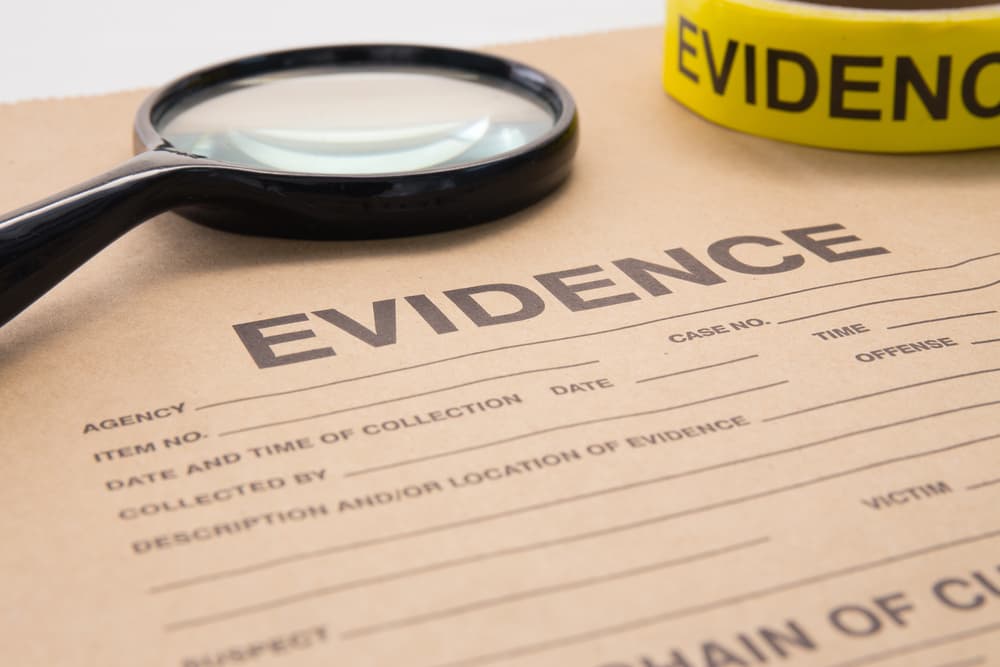Facing a lawsuit from a debt collector is a daunting and stressful experience. It's a situation more and more individuals find themselves in, and it comes with a mix of confusion and uncertainty.
Debt collection lawsuits are common, and they are not a reflection of your character or financial responsibility.
If you've recently received a notice that you're being sued for debt, it's important to recognize that you're not alone in this.
Contact an experienced debt defense lawyer who can demystify the legal process and provide you with clear, actionable steps to take after being sued by a debt collector.
The goal of Kazerouni Law Group is to empower you with knowledge and confidence, helping you to understand your rights and the best course of action.
Whether it’s responding to a lawsuit, gathering the necessary documentation, or preparing for court, having a debt defense attorney represent you can significantly impact the outcome of your case.
Step 1. Understanding the Lawsuit
When you're served with a lawsuit from a debt collector, it's good to know what you're up against.
A debt collection lawsuit is a legal claim filed by a creditor or a debt collector, asserting that you owe a certain amount of money and that you have not fulfilled your payment obligations.
Read and Comprehend the Lawsuit Documents

The paperwork you receive will include details like the creditor's name, the amount they claim you owe, and the deadline for your response.
If there's anything you don't understand, don't hesitate to seek clarification from an attorney. Many times, collection lawsuits are filed by big law firms that operate nationwide.
Lawyers who focus on representing debtors may be familiar with the law firm suing you, which will give you a distinct advantage over trying to represent yourself or hiring an attorney who is not familiar with debt collection law firms and their tactics.
Verify the Debt
In some cases, debts are filed against the wrong person, or the amount claimed is not accurate. You have the right to request a verification of the debt.
This process involves asking the debt collector to provide proof that the debt is yours and that the amount they’re claiming is correct.
Check the Statute of Limitations
Debts are subject to a statute of limitations, which varies depending on your state's laws and the type of debt.
If the statute of limitations has expired, the debt collector may not have a legal right to sue you. However, this doesn't mean the debt is erased; it simply means it can't be legally enforced through a lawsuit.
Understand Your Rights
As a consumer, you have rights under the Fair Debt Collection Practices Act (FDCPA). This includes protection from harassment, abuse, or misleading tactics by debt collectors. Familiarizing yourself with these rights can help you navigate the lawsuit with more confidence.
A thorough understanding of a debt collection lawsuit will help you respond and prepare for the journey ahead. The more informed you are, the better equipped you'll be to handle the situation effectively.
Step 2. Know How to Respond to a Debt Collection Lawsuit
Once you understand the lawsuit and have verified the information, the next critical step is responding to it.
Ignoring the lawsuit won't make it go away and could result in a default judgment against you. The following are ways a person can proceed to the court.
Respond Within the Deadline
Legal documents specify a time frame within which you must respond – typically 20 to 30 days from the date you are served.
It's crucial to adhere to this deadline. Failing to respond can lead to a default judgment where the court automatically rules in favor of the debt collector without hearing your side.
Decide How to Respond
The following are some examples of ways to respond to a debt collection lawsuit.
- Seek Legal Advice. If you're unsure about how to proceed, consulting with a lawyer can provide clarity. A lawyer can help you understand the lawsuit, evaluate your options, and guide you on the best course of action.
- File an Answer. This is your formal response to the lawsuit's claims. In your answer, you can admit, deny, or state that you don’t have enough information about the claims against you. It’s also the opportunity to raise defenses and counterclaims if applicable.
- Consider a Settlement. If the debt is valid and you wish to avoid going to court, you might consider settling the debt. Settlement can occur at any stage of the lawsuit. It involves negotiating with the creditor to agree on a payment amount that's less than what is claimed. It’s advisable to get any settlement agreement in writing and to consult a debt collection defense attorney before signing any agreement.
Prepare Your Responses in the Lawsuit
Whether you decide to file an answer, negotiate a settlement, or take other actions, preparation is key.
Gather all relevant information and documents related to the debt. If you decide to file an answer, hire a lawyer to do it correctly and file it with the court.
Responding to a debt collection lawsuit can feel intimidating, but taking timely and appropriate action can protect your rights and interests.
You have options, and the decision on how to proceed should be based on your specific circumstances and, ideally, informed by legal advice.
Step 3. Gathering Documentation and Evidence

After deciding how to respond to the lawsuit, your next step involves gathering all relevant documentation and evidence. This evidence can play a crucial role in verifying the debt, disputing inaccuracies, or forming a defense.
Collect Financial Records
Start by gathering any records related to the debt. This may include bank statements, credit reports, loan agreements, payment histories, and correspondence with the creditor or debt collector. These documents can help establish the history and status of the debt.
Organize Communication Records
If you've had any communication with the debt collector or creditor, such as emails, letters, or phone calls, make sure to organize these records. They can be useful in demonstrating how the debt has been handled and can also provide evidence if there's been any violation of your rights under the Fair Debt Collection Practices Act (FDCPA).
Review for Discrepancies
As you compile your documents, review them for any discrepancies or errors. Mistakes in the amount owed, the identity of the debtor, or the status of the debt can be critical in your response to the lawsuit.
Consider Other Relevant Evidence
Depending on the nature of your case, other types of evidence might be relevant. For example, if you're claiming identity theft or fraud, evidence supporting this claim should be gathered.
Keep Records Organized
Make sure all your documents are well-organized. This will not only help you understand your situation better but will also be invaluable if you are working with an attorney or need to present these documents in court.
Gathering and organizing your documentation is a fundamental step in building your case or defense.
It provides a clear picture of the debt situation and equips you with the necessary tools to dispute the lawsuit effectively or negotiate a settlement.
Thorough and accurate documentation can significantly strengthen your position in a debt collection lawsuit.
Step 4. Consider Hiring a Debt Collection Defense Lawyer
After gathering your documentation and understanding the lawsuit, you might wonder if you need legal representation. While it's possible to handle a debt collection lawsuit on your own, there are several reasons to consider hiring an attorney.
Debt Collection Law Can Be Complex
Debt collection laws and court procedures are involved and challenging to navigate without legal training.
An attorney with experience in debt collection cases can help you understand the legal jargon, file the necessary paperwork correctly, and guide you through the court process.
Developing a Strong Defense
An experienced attorney can help identify the best defense strategy for your case. This could include challenging the creditor's right to sue, disputing the amount owed, or asserting violations of the FDCPA. A lawyer can also negotiate with the creditor on your behalf, potentially leading to a more favorable settlement.
Avoid Common Pitfalls
Individuals representing themselves might miss critical deadlines, fail to file the proper documents or make other procedural errors that could weaken their case. An attorney ensures that your case is handled correctly from a legal standpoint.
Peace of Mind
Having a debt collection trial attorney can provide peace of mind. Knowing that a professional is handling your case can alleviate stress and allow you to focus on other important aspects of your life.
Litigation Costs Considerations
Many people avoid hiring a lawyer due to concerns about cost. However, some attorneys might take debt defense cases on a contingency basis or offer affordable payment plans. It's worth exploring your options and discussing fees upfront with potential attorneys.
Deciding whether to hire an attorney is a personal decision that depends on your specific circumstances, the complexity of your case, and your comfort level with legal processes.
Even if you choose to represent yourself, consider at least consulting with an attorney for advice on how to proceed with your case.
Step 5. Exploring Defense Strategies

Defending yourself in a debt collection lawsuit involves more than just responding to the claim. It's about actively exploring and presenting legal defenses that can challenge the lawsuit's validity or the amount claimed. Here are some common defense strategies:
Statute of Limitations
As discussed earlier, one of the first defenses to consider is whether the debt is too old to collect. Each state has a statute of limitations on debt, and if this time frame passes, the debt collector may no longer have the legal right to sue you.
However, certain actions, like making a payment or acknowledging the debt, can reset the clock and give a debt collector standing and the right to pursue a claim through the court system.
Identity Mistakes
Mistaken identity, including identity theft, is another defense. If the debt isn't yours, or if the lawsuit has incorrectly identified you as the debtor, this can be a powerful defense.
Amount Disputed
If you believe the amount claimed is incorrect, you have the right to challenge it. This might be due to incorrect interest charges, fees, or principal amounts. Documentation of your payments and communication with the creditor can support this defense.
Improper Debt Collection Practices
If the debt collector violated the FDCPA, you might have a defense. Examples include harassment, contacting you at unreasonable hours, or using deceptive practices.
Lack of Standing
In some cases, the entity suing you may not have the legal right to do so. This can happen when debts are sold and resold to various collectors. The current collector must prove they have the right to collect the debt.
Invalid Debt Agreement
If the original credit agreement has flaws, was not signed, or if the terms are excessively unfair, this might be a viable defense.
It's important to understand that not all defenses will apply to every case. The best defense strategy depends on the specific details of your situation.
A debt defense attorney can help you identify which defenses are most applicable and effective for your case. A well-prepared defense can make a significant difference in the outcome of your lawsuit.
Step 6. Understanding Possible Outcomes
When dealing with a debt collection lawsuit, it's important to understand the potential outcomes and their implications. This knowledge can help you set realistic expectations and prepare for what lies ahead.
Winning the Lawsuit
If the court rules in your favor, the debt collector may be barred from suing you again over this debt.
This could happen if you successfully prove a defense, such as the statute of limitations or mistaken identity.
Winning the case doesn't necessarily mean the debt is forgiven, but it does mean the collector can't legally enforce it through the court.
Losing the Lawsuit
If the court rules against you, the debt collector may receive a judgment to collect the debt. This could lead to wage garnishment, bank account levies, or liens on property, depending on state laws and the judgment's specifics.
Understanding the consequences of a judgment is crucial, as it can have long-term financial implications.
Settling the Case
Many debt collection lawsuits are resolved through settlement before reaching trial. A settlement involves negotiating an agreement where you pay a portion of the debt in exchange for the collector dropping the lawsuit.
Settlements can be beneficial as they often result in paying less than the full amount owed and can avoid the uncertainty of a court ruling.
However, ensure any settlement agreement is documented and specifies that the payment resolves the entire debt.
Payment Plan or Other Arrangements
In some cases, you might be able to negotiate a payment plan or other arrangements with the creditor. This can be a viable option if you acknowledge the debt but cannot pay the full amount immediately.
Understanding these outcomes helps you to prepare mentally and financially for the future. Consider all potential scenarios and plan accordingly, ideally with the guidance of a debt relief lawyer who can provide insight into the most likely outcomes based on your specific situation.
Step 7. Preparing for Court
If your debt collection case proceeds to court, being well-prepared is key. Here’s how to get ready for a court appearance:
Understand the Process
Familiarize yourself with the court procedures. Know where the court is located, the time and date of your hearing, and the specific courtroom where your case will be heard. If possible, visit the courthouse beforehand to get a sense of the environment.
Organize Your Documents
Bring all relevant documentation to court. This includes any correspondence with the debt collector, your financial records, payment histories, and any evidence supporting your defense. Organize these documents in a way that makes them easy to present and reference during the hearing.
Plan Your Presentation
Think about how you will present and defend your case. If you’re representing yourself, practice explaining your situation clearly and concisely.
Focus on the facts and avoid emotional arguments. If you have legal representation, discuss your strategy with your lawyer and understand your role during the hearing.
Dress Appropriately
First impressions matter in court. Dress in a manner that shows respect for the court. Business casual attire is usually appropriate.
Arrive Early
Plan to arrive at the courthouse well before your scheduled hearing. This gives you time to find the right courtroom, compose yourself, and review your notes one last time.
Stay Calm and Respectful
Court proceedings can be stressful, but it’s important to remain calm and respectful. Address the judge as “Your Honor” and be polite to all court staff and the opposing party. Listen carefully, speak clearly, and only when it’s your turn.
Prepare for the Outcome
Whether the judgment is in your favor or not, be prepared to discuss the next steps. If you win, understand what this means for your debt. If you lose, you may need to discuss payment arrangements or appeal options.
Preparing for court is about more than just showing up on the day. It involves careful planning, organizing evidence, understanding the legal process, and presenting your case effectively.
Whether you’re representing yourself or with the help of a lawyer, thorough preparation can significantly influence the outcome of your hearing.
Contact a Debt Collection Defense Attorney
When you find yourself facing a lawsuit from a debt collector, consider reaching out to consumer protection attorney at Kazerouni Law Group. You do not need to pay out of pocket for legal help.

Our team is experienced in helping people who have been sued over their debts. We provide the support and representation you need to navigate a debt collection lawsuit with confidence.
To initiate the process of addressing your debt collection lawsuit, we invite you to get in touch with us immediately.
Find out how we can help you today by calling 800-400-6808 for a complimentary evaluation of your case. Alternatively, feel free to contact us through our website to discuss your situation with an attorney.